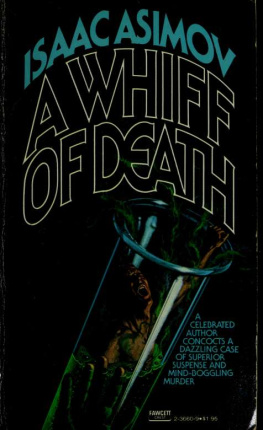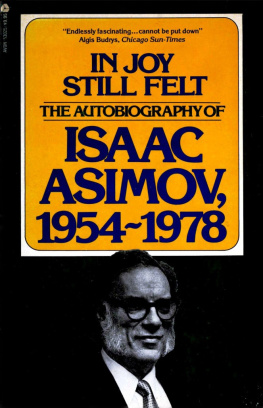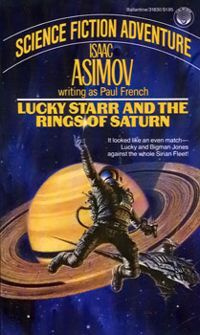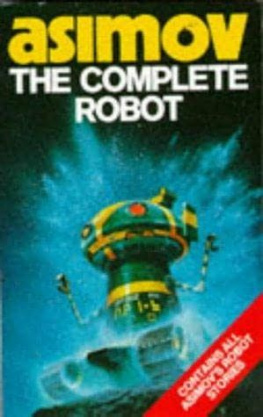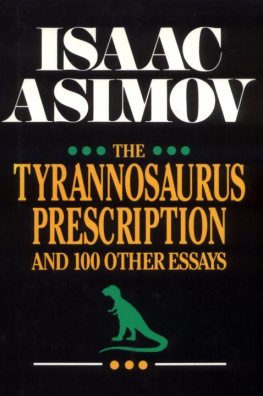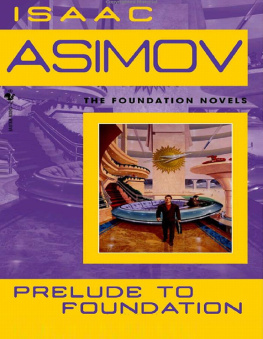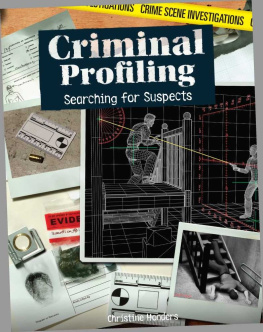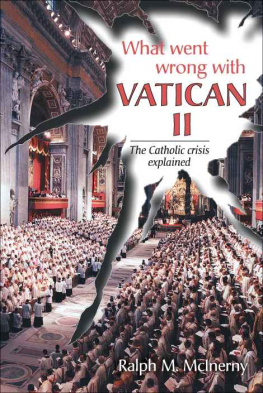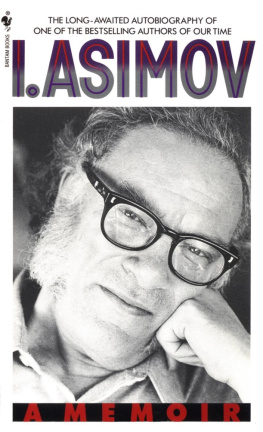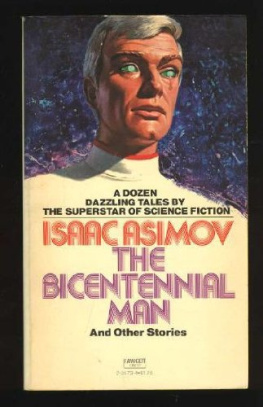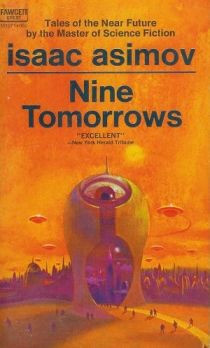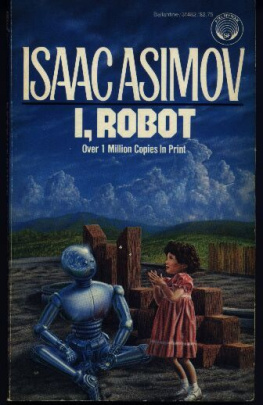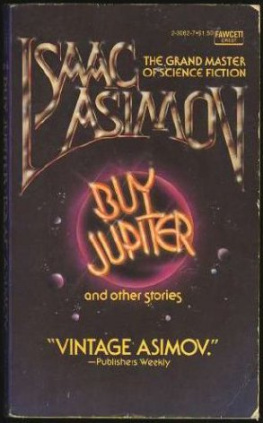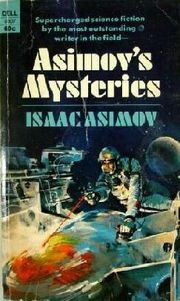This book made available by the Internet Archive.
A Whiff of Death
Surely, one couldn't deal with Death so closely and not be marked in some way.
He replaced his glasses and looked about the laboratory again. Why be marked by meeting Death a little more closely this once? He met him, after all, every day, every moment, in every direction.
Look at him there, sitting in half a hundred reagent bottles of brown glass, crowding the shelves. Each bottle of Death was clearly labelled, each filled in varying amounts with its particular kind of fine, pure crystals. Most of them looked like salt.
Salt could kill, of course. Take enough of it and it will kill. But most of the crystals in those bottles would do the job much more quickly than salt would. Some would manage it in a minute or less in the proper dosage.
Quickly, slowly, painfuDy or not; each one was a sovereign cure for earthly misery and from their use no relapse into life was possible.
Brade sighed. To the oblivious ones who used them, they might as well be salt. They were funneled onto sheets of weighing paper or into flasks, dissolved in water, spilt or splashed on work-bench tops and brushed idly away or wiped up with a paper towel.
All those drops and crumbs of Death were moved to one side to make room, perhaps, for a sandwich. Or a beaker that had but lately held the Great Leveller might be used again for orange juice.
The shelves held lead acetate, called sugar of lead because it tasted sweet as it killed you. There was barium nitrate, copper sulfate, sodium dichromate, dozens of others, death-dealers all.
And potassium cyanide, of course. Brade had thought the police would impound it, but they only viewed it from
a distance and left it there with its better than half a pound of Death inside.
In the cabinets below the laboratory bench were the five-liter bottles of strong acids, including sulfuric acid that could blind in a careless spurt and leave you with a scar for a face. In one corner were compressed gas cylinders, some a foot long, and some almost as tall as a man. Any one of them could explode desperately if a few simple precautions were neglected or, in some cases, poison insidiously.
Death by force or by stealth, by mouth or by nose; or even bit by bit over the years, as with the mercury droplets that would surely glitter across floor cracks and hidden corners in evil brightness if the dust that covered them were removed.
In every way, Death was there and no one minded. And then, once in a while, as now, one of those who sat with him did not rise again, ever.
Brade had walked into the student laboratory three hours earlier. His oxygenation reaction was proceeding busily and his fresh new oxygen cylinder, which had just been maneuvered into place, was bleeding oxygen gas slowly into the reaction system. It was set for the night; he had one last little task and then he would return home for his five o'clock appointment with old Cap Anson.
As he explained afterward, it was his custom to nod good-evening to those of his students who were in their labs at the time he left for the day. And, in addition, it had been his intention to borrow a small quantity of standardized tenth-molar hydrochloric acid and Ralph Neufeld, as everyone knew, had the most meticulously standardized reagents in the building.
He found Ralph Neufeld slumped across the soapstone surface inside the hood with his face turned away from the door.
Brade frowned. For an intense student like Neufeld that was a most unorthodox pose. The proper young chemist, when conducting an experiment within a hood, kept the movable window of safety glass lowered between himself and the simmering chemicals. He kept the inflammable, noxious fumes safely within the enclosed area of the hood to be carried up by the fan to the exhaust on the roof.
One would not expect to see the window up and the experimenter resting his head on one elbow inside.
Brade said, "Ralph!" and stepped over to the student casually, footsteps light on the cork composition floor (intended to bounce dropped glassware unbroken) and at the touch of his hand Neufeld's body moved stiffly. With sudden, startled energy, Brade turned the student's head so that the face came into view. The blond, close-cut hair fell in tight waves as usual. Neufeld's eyes greeted him with a glassy stare from under half-open lids.
What is there that so sharply distinguishes the face of one dead from that of one sleeping or drunk?
It was death. Brade's hand found Ralph Neufeld pulseless and perceptibly cooled and his chemist's nose caught the faint traces and lingering remains of an almond odor.
Brade swallowed dryly and called the Medical School three blocks down, managing to keep his voice at almost its ordinary timber. He asked for Dr. Shulter, who he knew, and got him. Then he called the police. /
He next called the department head, but Professor Arthur Littleby, it turned out, was gone and had been gone since lunch. He told Littleby's secretary, for the record,
what he had found and what he had done and warned her to avoid spreading the news for a time.
Then he crossed over to his own lab and closed off the oxygen, opening his reaction system and removing the heated jacket. Let it come to a halt. It had no importance at the moment. He stared at the gauges of the tall oxygen cylinder, unseeingly trying to absorb the facts and not entirely succeeding.
Then, feeling himself in the middle of a great and empty silence, he turned back to the dead student's laboratory, made sure its door was closed and on the latch, and sat down with Death to wait
Dr. Ivan Shulter of the Medical School knocked gently on the door and Bretde let him in. Shulter's examination was not prolonged. He said, "He's been dead for a couple of hours. Cyanide!"
Brade nodded. "I had supposed that."
Shulter brushed gray hair back off his forehead and exposed more of a sleek face that obviously perspired easily and was glistening now. He said, "Well, this will make a stink. It would be this one, of course."
Brade said, "Do youdid you know him?"
"I've met him. He takes books out of the medical library and then won't return them. I had to send a gaggle of librarians out after him to get a volume I needed and he reduced one of them to tears by being quite nasty about it. But it doesn't matter now, I suppose."
He left.
The medical man brought in by the police agreed with the diagnosis, made a few brisk notations and disappeared. Pictures were taken from three angles and then
what was left of Neufeld was wrapped in a sheet and carried out.
A chunky plainclothesman remained behind. He introduced himself, with a flash of card, as Jack Doheny. His cheeks sagged plumply, and his voice had a bass rasp to it
He said, "Ralph Neufeld," spelling it out painstakingly, then showing it to Brade for confirmation. "Any close relatives we can get in touch with?"
Brade looked up thoughtfully. "He has a mother. The office will have her address."

